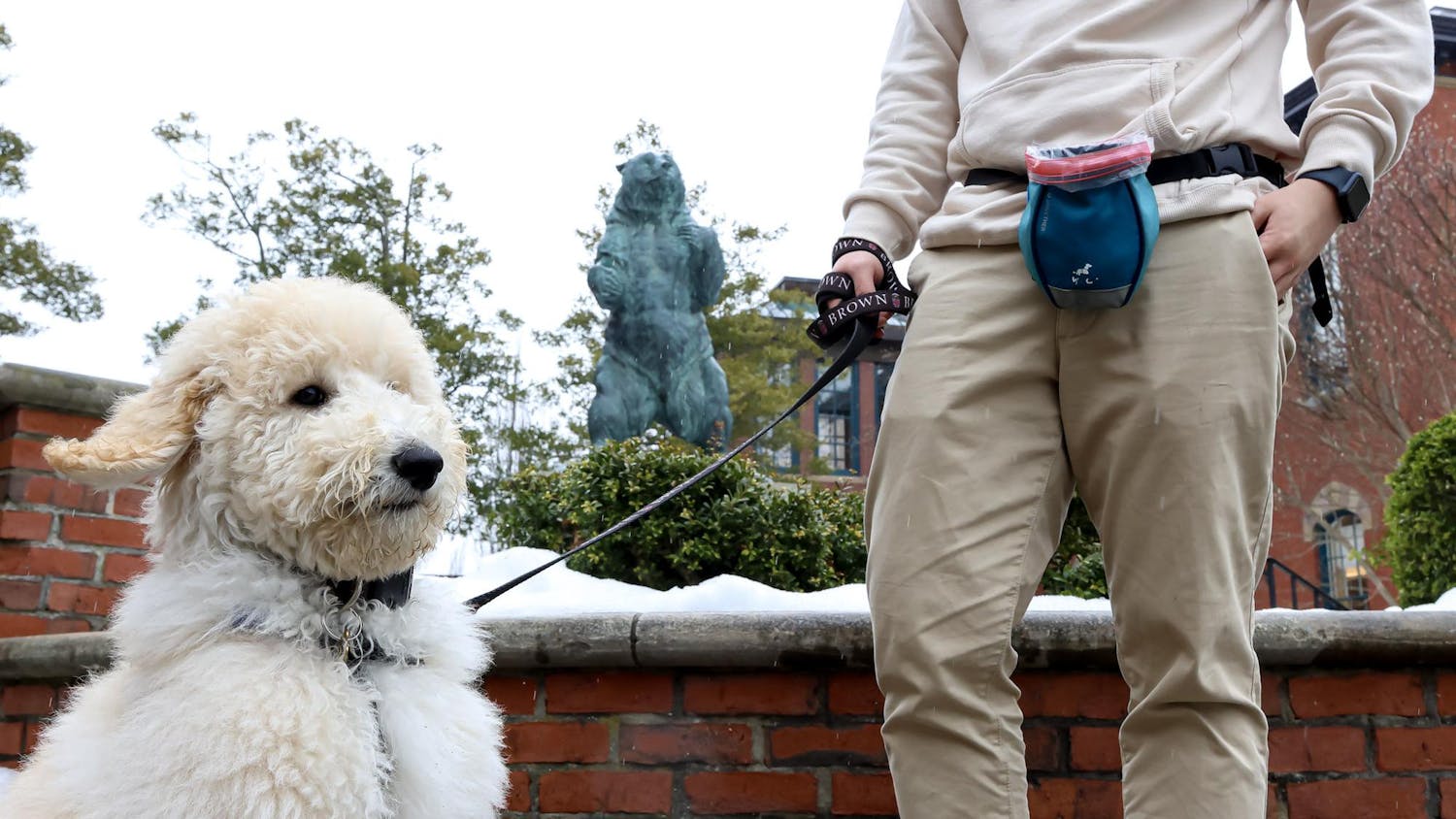Two lawyers who litigated a landmark 2008 Supreme Court case debated the merits of firearm regulation and the role of the Second Amendment before a packed crowd in Salomon 101 Thursday afternoon.
The event, held by the Janus Forum in honor of Constitution Day, featured Joseph Blocher, a Duke University law professor who worked on the merits briefing for the District of Columbia, whose regulations were struck down by the court's decision in D.C. v. Heller, and Alan Gura, the lead counsel for the defendant in the case. Each gave a 25-minute lecture on the case and the ramifications of its decision.
The case, decided 5-4 by the Supreme Court in June 2008, declared D.C.'s ordinances prohibiting civilian ownership of handguns and other firearms unconstitutional and in violation of the Second Amendment.
Gura argued that the Constitution's framers intended the right to bear arms to apply directly to individual citizens and that the D.C. statute effectively abolished that constitutionally protected individual right.
Blocher said that limitations on the First Amendment and other constitutional rights currently exist, and are not considered unconstitutional by the Supreme Court. The D.C. regulation, he argued, did not contradict Second Amendment principles, it merely constrained them.
Gura placed emphasis on the exact wording of the Constitution, saying that if a matter is "spelled out" in the text of the document, the amendment should receive particular protection, as he said the First Amendment does.
Gura rejected the idea that the Heller decision represented "judicial activism" in the negative sense. He said the justices engaged in a thorough judicial review to enforce a vital part of the Constitution.
The Second Amendment is spelled out, Gura argued, whereas the right to privacy relied on in Roe v. Wade, the 1973 case that established a right to abortion, does not have a clear basis in the Constitution's text.
"I think we need to have a lot more activism out there," he said, if activism means the Court take its job to enforce the Constitution seriously.
While Blocher said that the intent behind the Constitution should be taken into account, he criticized complete reliance on the school of legal thought known as originalism, which he said underpinned Gura's arguments and the decision in Heller.
"Originalism can't and doesn't have to give us all the answers," Blocher said. "It just needs to give us something to work with."
In the specific case of the Second Amendment's wording, he argued that the text was intended to address the need for a well-trained militia — not a need to arm regular citizens out of fear of governmental tyranny or for self-defense.
He also said the Second Amendment was unnecessary to ensure a right to self-defense, because the amendment doesn't address self-defense, which he said has always existed as a common-law right.
"Do we now have a constitutional right to defend ourselves with guns but not to defend ourselves with our fists?" Blocher asked.
He criticized the Supreme Court for lacking a clear rationale for simultaneously declaring the D.C. ordinance unconstitutional and allowing other limitations on Second Amendment rights for groups ranging from felons to children.
Gura disagreed with Blocher's argument that the militia had sole or primary rights to firearms. The framers of the Constitution, he said, believed the term "militia" referred to members of the general public who could defend their communities.
"It's the people who have the right — not the militia, not the state," Gura said.
After the lecture, each speaker had the opportunity to ask the other a question. Blocher asked Gura whether a law that required guns to be unloaded or otherwise inoperable when not in use would be constitutional. The D.C. statute struck down in Heller contained such a provision.
Gura said he thought such "self-storage" laws were reasonable, but that such a restriction could not extend to a person when he or she is home.
"We argued that if you have the right to arms, you have the right to arms you can actually use," Gura said.
During the audience question-and-answer session, Adam Frees '13 asked Gura why the Second Amendment does not contain the words "for the people" instead of "militia" if it was meant to refer to all citizens. Gura said the militia was referred to directly by the framers because militia forces had just been used successfully in the American Revolution.
Another audience member questioned Blocher's assertion that, according to an originalist interpretation, the Second Amendment would only protect white men's ability to carry arms. Blocher responded that he thought his argument was a valid example of why originalism could not be relied upon in full, saying the framers' intentions could only go so far.
When one student asked the speakers if they thought the country would be better off with or without the Second Amendment as it applies to individuals, Gura and Blocher agreed that, even though the matter was complicated, the Second Amendment is an important part of the Constitution. Gura said the document should not limit how people defend themselves, while Blocher said the ability to curtail the Second Amendment through regulation is vital.
As originally planned, the event was to have Walter Dellinger III, the other lead attorney in who argued Heller, speak alongside Gura, but he cancelled a few days before the lecture.




